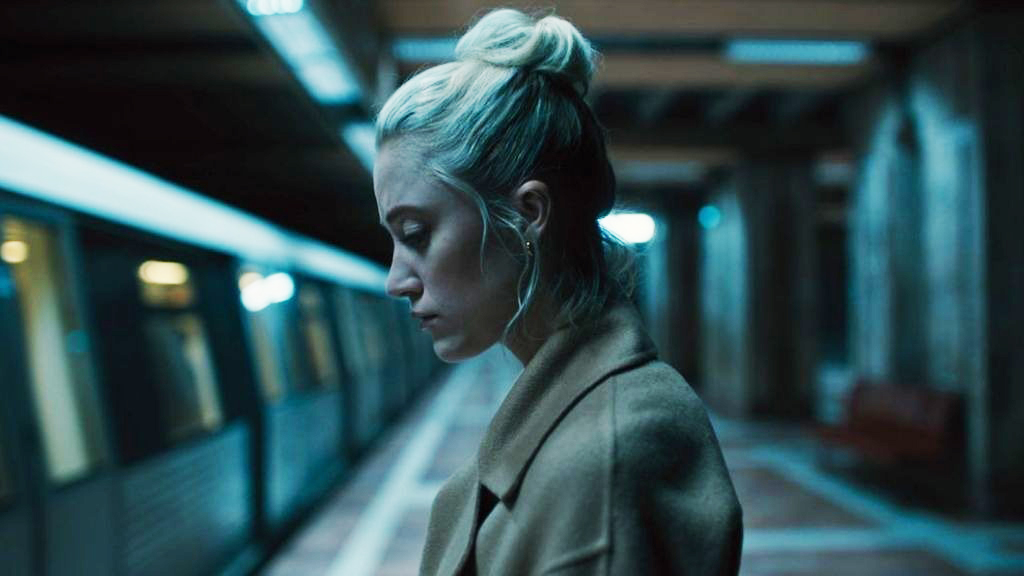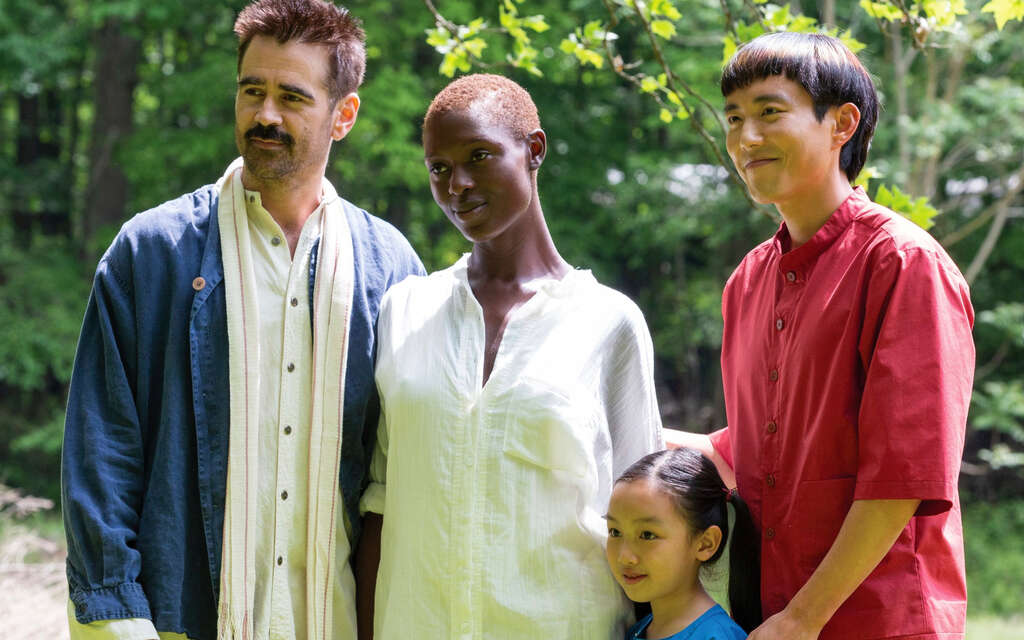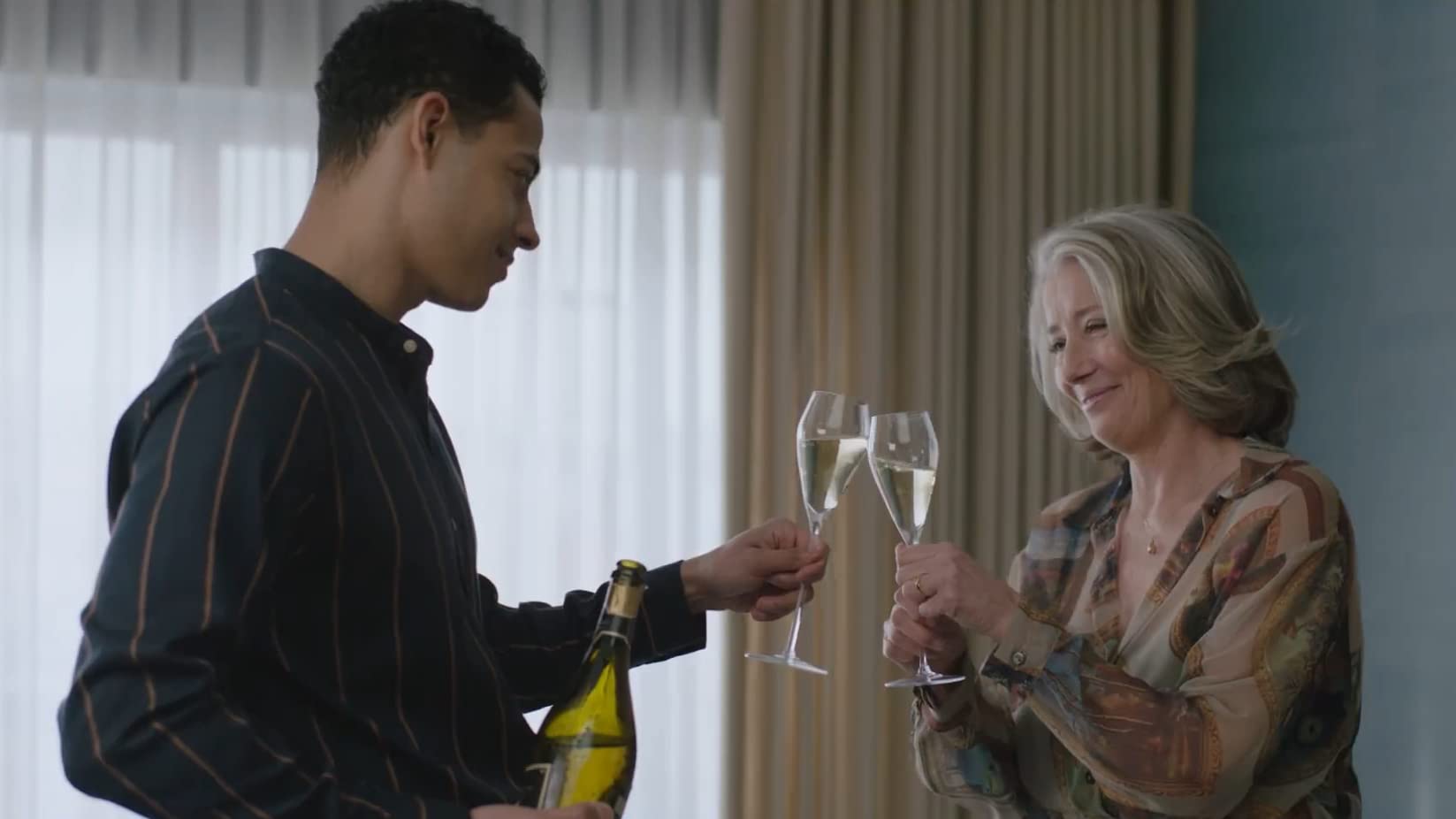5. Sundown

If you’re familiar with Michel Franco’s films, you should know that the Mexican director is following the steps of Haneke. He’s not as deep maybe but still depressing, thought-provoking, and engaging in his own ways. This film is his second collaboration with Tim Roth, one of Britain’s finest actors. Roth previously appeared in “Chronic”, which was another underrated drama. Here he plays a man from London, now staying in a resort in Mexico with his sister and her children. They get a call about their mother being in the hospital and might die. Roth’s character makes up a lie to not go with them and instead spends his days alone in this place. What does he want? Why is he acting like this? We keep asking questions, sometimes find watching him frustrating but some other times, strangely comforting.
Tim Roth is a perfect actor to play such a role, he might seem deadpan but he’s more of a professional magician, who keeps hiding his tricks. He plays his character like a puzzle, you don’t understand him unless he wants you to. He’s a mystery but in small nuances, you get a glimpse of what he’s really feeling inside. That’s why he’s such a special actor. “Sundown” being overlooked is understandable as it’s yet another slow-paced drama on the list with not much dialogue but it’s worth watching if you’re looking for a great character study that asks philosophical questions.
4. Watcher

Some of Hitchcock’s films getting made over and over again. There are direct remakes of “Rear Window”, a modern adaptation of it, and countless films inspired by it. Just recently, we got Joe Wright’s awful “The Woman in the Window” which tried to be distinctive but ultimately failed. Then we had “The Voyeurs” which could’ve been better but still works if you’re looking for an old-fashioned type of Hitchockian thriller. Now we get “Watcher”, which is much better than many other of similar films because the direction here is so strong, so commanding and so confident.
The director Chloe Okuno and the cinematographer Benjamin Kirk Nielsen create such an engrossing atmosphere around an American girl who moved to Romania with her husband but feels isolated, and somewhat paranoid. No wonder she feels that way because there’s a serial killer around and she feels someone in the neighborhood does stalk her. Is she paranoid because she’s just in a country where she has no friends, no activity to do, and not much language skills to talk with others? Or is something really bad going on? Maika Monroe is becoming the queen of the indie genre films with great performances to her name in “The Guest”, “It Follows”, “Greta”, and Quibi series “The Stranger”. She’s already mastering the genre and her performance here is brilliant and central to why the film works so well.
3. After Yang

Jake owns a tea shop and lives with his family in a Japanese-style Eichler home. He and his wife Kyra adopted a Chinese girl, and in order for Mika to learn about her Chinese culture, language, and roots, they bought a used and sentient android, a boy named Yang, to grow up with her and help her settle in with them to feel good. However Yang stops working properly and since the warranty period has expired, Jake realizes a replacement would be too expensive. So Jake goes to a repair shop, which can’t give him much hope, but at least removes the memory from Yang’s chest. When he watches Yang’s memories, he gets confused as realizing that Yang might have his own feelings too.
Kogonada’s amazingly directed “After Yang” is a poetic experience that asks big questions: What does it mean to be a human in a world where technology is everywhere? What are true humane feelings? What is it to live anyway? It’s a meditative, quiet, engrossing experience which doesn’t depress you at all but still somewhat hits you on an emotional level. Lots of Tarkovsky influences but still it’s a film on its own, an unusual rare breed in modern cinema. Colin Farrell’s performance is another strong part of the film, and as it got released in “The Batman”, it feels astonishing to witness his versatility.
2. Good Luck to You, Leo Grande

It’s always thrilling when a veteran filmmaker returns to the cinema but unfortunately, Adrien Lyne’s “Deep Water” was not up to the films he made in his glorious days. This sparked a conversation in some internet circles however that is why the erotic films in American mainstream cinema are getting less and less. Probably there are many arguments that can be made but luckily the independent cinema is not shying away from discussing sex, if not necessarily “erotic”. It’s always good to see sex positivity is promoted in movies.
Ti West’s “X” was such a fresh spin on slasher in that regard and “Good Luck to You, Leo Grande” is another sex-positive film about an anxious, religion teacher (Emma Thompson) hiring a sex worker and spending a day with him. There is a little bit of “education” level to be found in the dialogues but it’s not a flaw, because, in most of the film, both characters learn a lot too and their interactions feel organic, not forced. It helps that the acting is strong but the director Sophie Hyde also uses the location really well. In one-room films, it’s easy for them to turn into something rather play-ish but Hyde’s use of the place and light makes it cinematic throughout the film. The characters are engaging, the story is constantly thought-provoking and the topic the film chose for itself is discussed in a rather honest way. All of these elements make the film pleasantly warm and worth-watching.
1. Apollo 10 1/2: A Space Age Adventure

We really do get a lot of nostalgic trips recently. You make the film set in the 80s, you use songs by Bon Jovi, some references to the most popular elements of the era, and maybe have a John Carpenter-ish score and here you go; you have a film that will warm the hearts of audiences. Not saying it’s always a bad thing, of course, we always seek different eras of filmmaking and want those movies to still live but sometimes those films turn into just easy cash grabs that manipulates your feelings based on the nostalgia you have for the era (“The Adam Project”) or a certain film made in the past (“Ghostbusters: Afterlife”). They don’t make any commentary, they don’t feel like they come straight from the heart. Richard Linklater’s film is different in this way because it feels honest.
It’s not obsessed with making references to something popular because it’s all about Linklater’s own childhood, own way of looking at life at that time, at science, popular culture, life, love, and everything else. It doesn’t’ feel manipulative and it feels very original. In fact, it’s somewhat non-mainstream as well because the narrative structure is not like your average film. The story is about the first moon landing in the summer of 1969 from two interwoven perspectives but even this might give you the wrong idea of what the film is about. Sometimes it’ll take you to your own childhood, even if you’re much younger than him because some of the childhood curiosities never change. The drama is moving but never forced, and the visuals are just fantastic. This is a great example of a film how a film full of nostalgia should be made; Always honest, never manipulative.